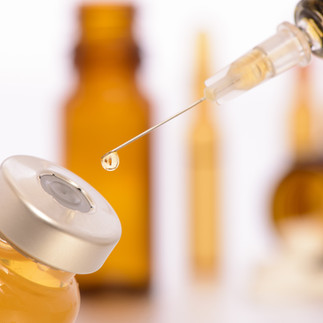Vaccinations - a useful overview for seafarers
- Rachel Smith

- Jan 15, 2025
- 3 min read
From Flu jabs to far flung destinations…
Vaccinations are a hotly debated topic across the globe, particularly after COVID-19 and the rapid response to the need for a vaccination to help reduce the burden on the health services in different countries.
While the majority of healthcare workers and the general population support the ‘prevention is better than cure’ line of thinking, and therefore vaccinations, there are others who are determinedly against vaccinations for any disease, whatever the risk of mortality and death may be.
In the UK, the BCG (Bacillus Calmette-Guerin) vaccination used to be given to all children in their teenage years to protect against tuberculosis. The vaccine has been so successful that TB is virtually eradicated now, and the majority of cases are due to migration. Now it’s only given to those deemed at high risk - babies and children at high risk, those travelling to high risk regions and adults coming into the UK from high risk countries.
Depending on your country of origin, you should receive a range of vaccinations as a child or young adult. This will most likely include diphtheria, tetanus, polio and whooping cough, hepatitis and HIB (Influenza type B). Then MMR (measles, mumps and rubella), the pneumococcal vaccine (meningitis, pneumonia and sepsis) and HPV (Human Papilloma Virus) with a variety of boosters along the way.
At the other end of the scale, the over 65s can receive vaccines for shingles, pneumococcal vaccine and respiratory syncytial virus along with flu and covid vaccines.
That’s a whole lot of vaccines right! So why are they so important? Vaccines help to protect you and your community against serious and potentially deadly disease. Some people can’t have vaccines, or have conditions that make the immunocompromised and more vulnerable to infection, but keeping your vaccinations up to date will help to protect them too. Vaccinations help to reduce or eliminate diseases, but only if enough people are vaccinated.
All vaccinations undergo rigorous safety testing before release and are constantly monitored for side effects after being introduced. Some will cause mild side effects such as a fever, feeling a bit unwell, or a sore arm - but they should pass within a day or two.
Despite this, anti-vaccine stories are often seen online and in the media. This disinformation is generally anecdotal and based on limited opinions, rather than the scientific evidence that drives medicine. So it’s important to make sure you get your vaccine and other health advice from trusted sources such as the NHS or country equivalents, or the World Health Organisation (WHO). All current evidence tells us that getting vaccinated is safer than not getting vaccinated!
Some years ago, there was a suspicion pushed by media outlets that the MMR vaccine was causing autism in children. Scientific research has proved that there is no link at all.
However, this is still impacting the uptake of the MMR vaccine and in some areas, measles and the effects of its complications is on the increase. Far from being just a bit of a cold and rash, measles can have lifetime and life threatening complications such as diarrhoea, dehydration, ear and eye infections, breathing problems, pneumonia, blindness, deafness and brain swelling leading to brain damage.
But what about that time in between our teenage years and being 65? If you travel frequently, as many of us do, you might need to check up on the vaccination requirements or recommendations for the region you’re going to visit or transit.
The NaTHNaC website is a great resource with outbreak surveillance information and links to find out more about specific countries and diseases - even some you’ve never heard of!
The Travel Health Pro link offers a country search with some really useful hints and tips for travellers or residents.
The World Health Organisation is another valuable source of information for travellers and you can find out more about some common tropical diseases here:
To finish, we’d just like to reiterate how important vaccinations are, particularly working onboard ships and living in close proximity to others. We owe it to ourselves and others to do our bit and stay protected. If you think you need a particular vaccination and don’t know what to do, speak to the medic onboard, or HR/Occupational Health department for your company and they should be able to advise.










Comments